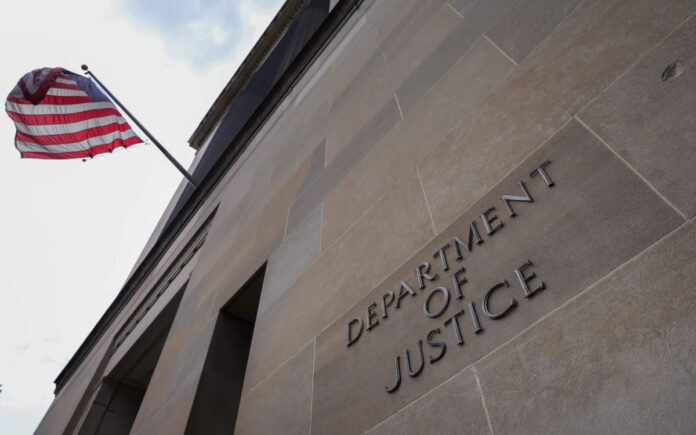Washington: The U.S. Justice Department under President Donald Trump’s administration has implemented a sweeping new policy barring employees from posting about their government roles on social media. The move follows a surge in politically charged online content from several newly appointed officials who openly praised Trump and criticized his opponents.
The directive, issued via email to U.S. Attorneys’ offices late Monday, explicitly curtails the type of social media activity that many Trump appointees have used to publicly support the president. This internal crackdown is reportedly driven by concerns over maintaining the department’s perceived impartiality.
Deputy Attorney General Todd Blanche is said to have spearheaded the policy change after expressing growing frustration over inflammatory posts shared by political appointees, according to a source familiar with the matter. The Justice Department has not provided an official comment on the matter.
Historically, the department has enforced some limitations on social media use—barring employees from sharing non-public information about investigations or making overtly political statements. However, the latest policy marks a more aggressive and expansive approach.
Under the new rules, DOJ employees are prohibited from attaching their department titles to any social media content, even when sharing official government releases or press statements. Furthermore, the policy directs employees to avoid any posts that could “damage the efficiency of the department.”
Critics argue that the policy could have a chilling effect on DOJ personnel, particularly those with differing political views.
“The new policy represents another unwarranted attack on DOJ employees – one that stifles their free speech in their private lives and creates new ways for the administration to oust career public servants who don’t toe the party line,” said Stacey Young, a former DOJ civil rights attorney who now heads Justice Connection, an advocacy group for department employees.
The directive comes at a time when top political appointees in the department have been openly engaging in partisan commentary on social media—comments that would now be deemed inappropriate under the new policy.
The document advises officials to avoid injecting political opinions into their duties and to steer clear of any remarks that show “reckless disregard for the truth,” particularly concerning individuals the department may be investigating or prosecuting. It further states that posts must not prejudice any legal proceedings or “heighten condemnation of an accused.”
Despite the new policy, some high-profile figures within the DOJ have continued with controversial posts. Leo Terrell, a senior counsel in the Civil Rights Division leading its antisemitism task force, regularly posts on X in support of Trump. “Democrats are jealous of President Trump!” he wrote in a recent post.
Last month, Terrell also shared a post from white nationalist Patrick Casey—founder of the now-defunct group Identity Evropa—that claimed Trump could “revoke someone’s Jew card.”
Similarly, Aaron Reitz, who heads the DOJ’s Office of Legal Policy, accused “Dem-appointed judges” in an April 8 post of aiding drug cartels to undermine Trump’s authority in foreign policy.
Also Read | Zuckerberg Feared Breakup: Instagram Spinoff Was on the Table
Another senior figure, Attorney General Pam Bondi, wrote in a March 27 post that law enforcement had captured a “top MS-13 national leader.” However, official documents contradicted that claim, stating the individual, Henrry Josue Villatoro Santos, only showed “indicia of MS-13 association.” The charges against him were later dropped, and deportation proceedings began.
Ari Cohn, tech policy lead counsel at the Foundation for Individual Rights and Expression, expressed concern over the breadth of the new restrictions.
Also Read | Trump’s China Tariffs Derail Tesla’s Cybercab, Semi Production Plans
“The risk that these rules will be wielded in a partisan way to purge the DOJ of anyone who expresses a political view out of step with the leadership or administration is deeply concerning,” he said in a statement to Reuters.
While the Justice Department insists the move is intended to preserve professionalism and impartiality, critics warn it may instead serve as a tool to silence internal dissent and suppress free expression among its ranks.



